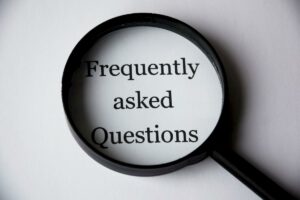The task of asking a question in French can seem overwhelming at times.
If you are a beginner, it is likely that you’ll start with the question Qu’est ce que?. But just as you think you understand it finally, you hear about qu’est-ce qui and you feel like you’re starting from scratch.
Today, we’ll help you finally resolve all the doubts regarding Qu’est-ce que and Qu’est-ce qui questions in French.
Introduction
When a question begins with que/qu’, it means it is an open-ended question. Open-ended questions are the ones for which you cannot give a yes or no answer.
Open-ended questions are similar to Wh – questions and are also called information questions. When you ask for information about “who”, “what”, “when”, etc., you’re asking an open question.
To learn more about open-ended and close-ended questions in French, click here.
There are two variants of this question. One starts with qu’est-ce que, and the other with qu’est-ce qui.
The phrase qu’est-ce que and qu’est-ce qui literally means “what is it that…” or in normal English “what is… ?”
We’ll examine each question word separately before addressing the differences.
Before you start, get your familiar with the basic difference between que and qui with Alexa. It will help you better understand the following content.
Qu’est ce que
In the phrase Qu’est-ce que we eventually want to find out who is the object of the sentence.
Que est-ce que is composed of three French words, and the one that repeats at the end:
Que + est + ce + que→ “What + is + it/that?…”
Note that the formation qu’est ce que simply contains another que in front of the est ce que.
Qu’est-ce que vous cherchez? (informal question)
What are you looking for?
Now, this kind of question isn’t a formal one. If you’d like to ask a formal question, then an inversion is required.
Let’s see an example
Qu’est ce que cherchez vous ? (formal question)
What are you looking for?
As a French question, it’s a long way to ask: “What… ?” It’s correct French, but in real, everyday spoken French, we tend to ask shorter questions.
For instance, you can ask: Qu’est-ce que c’est ? → What is it?
But, in day to day spoken French, we would rather say:
C’est quoi?
What is it?
or
C’est quoi ça?
What is this thing?
Qu’est-ce qui
When we ask a question using Qu’est-ce qui, we eventually want to find out who is the subject of the sentence.
Let’s break down the question, for you.
Que + est + ce + qui →Who is it that?(literally)
Using the French question Qui est-ce qui… (= “Who is it that…” = “Who… ?”), you ask to learn Who?
Qui est-ce qui a appelé ?
Who called? (or literally, Who is it that called?)
You can ask the same question in a simpler manner, too.
Qui a appelé ?
“Who called?”
The Difference Qu’est-ce que vs Qu’est-ce qui
If the question begins with que/qu’, it means it regards a thing.
The phrase qu’est-ce que and qu’est-ce qui literally means “what is it that…” and is used about as often as in English saying “what is… ?”
There are two variants of this question, one is qu’est-ce que, and the other is qu’est-ce qui.
Que is used when talking about an “object”, while qui when talking about a “subject”.
The difference between asking Qu’est-ce que tu cherche? (What do you look for?) in French and Qu’est-ce qui est venu? (Who came?) is a matter of whether the interrogative “what” is the object or the subject of the verb.
Qu’est-ce que wants to know what is the object of the verb (the thing receiving the action)
In Qu’est-ce que vous voulez?, vous (you) is the subject of the verb. Because we already have a subject, the interrogative qu’est-ce que can’t be the subject, and therefore must be the object. Take a look at a couple of examples.
What’s that ? (object)
Qu’est-ce que c’est ?
Qu’est-ce que tu veux ? (object)
What do you want ?
Qu’est-ce qui wants to know what is the subject of the verb (the one performing the action)
Qu’est-ce que fait ce bruit-là? (subject)
Who is making that noise?
What’s happening ? (subject, or the thing that’s happening)
Qu’est-ce qui se passe?
To expand, even more, watch this video explanation.
To practice the difference, make sure to go through this exercise.
The Art of Asking Questions
If asking questions is an art, then asking questions in French is even more artistic.
You get to choose between so many possibilities, and some of them seem rather complicated to a French learner, like qu’est-ce que.
Don’t worry if it takes a bit longer to understand and put into practice. Remember that sometimes it only needs more time, not effort.
